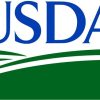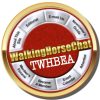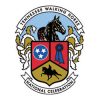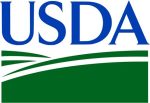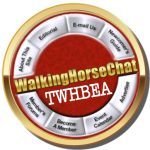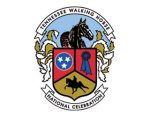APHIS seeks equine professionals for inspector roles
July 31, 2024
One of the changes to Horse Protection Act (HPA) regulations earlier this year, in an effort to end horse soring, meant the elimination of industry self-regulation and the role of lay person inspectors at horse shows, exhibitions, sales, and auctions.
Going forward, only U.S. Department of Agriculture’s (USDA) Animal and Plant Health Inspection Service (APHIS) inspectors and independent non-APHIS–employed horse protection inspectors (HPIs) who are screened, trained, and authorized by APHIS will have inspection authority, beginning with the 2025 show season.
These third-party inspectors must be veterinarians, veterinary technicians, or state or local animal welfare officers; all must have equine knowledge and experience.
Updates to the Horse Protection Act remove the ability for horse industry organizations to train and license inspectors for horse shows, exhibitions, sales, and auctions. Instead, the U.S. Department of Agriculture’s (USDA) Animal and Plant Health Inspection Service will screen and train applicants, preferably veterinarians, to be horse protection inspectors.
“This puts the welfare of these competing horses in the best trained, knowledgeable, ethical, non-biased, and most qualified hands possible to conduct these important inspections,” said Keith Kleine, director of industry relations with the American Association of Equine Practitioners.
Individuals interested in applying to become an HPI can complete an application on the APHIS website.
While HPIs may not conduct inspections until the new rule goes into effect February 1, 2025, APHIS began the HPI application process on June 7, so that training and authorization of HPIs can occur beforehand.
Currently, horse show managers can voluntarily hire USDA-trained lay inspectors, known as designated qualified persons (DQPs) as chosen by certain horse industry organizations (HIOs). APHIS also has its own veterinary medical officers (VMOs) who perform inspections at some venues.
“While APHIS attended only a fraction of the events at which DQPs were appointed to inspect horses, APHIS consistently reported much higher rates of noncompliance at these events based on its VMO inspection findings when compared to DQP findings. Moreover, virtually all noncompliances were found in padded horses competing in the Performance division,” according to the Federal Register notice. This is also backed up by APHIS inspection data from 2017-22.
Soring is the practice of applying a substance or mechanical device to a horse’s forelegs that will create enough pain that the horse will exaggerate its gait to relieve the discomfort. The resulting high-stepping running walk, or “big lick,” is rewarded by horse show judges, although showing a sored horse is illegal.
Tennessee Walking Horses commonly suffer from the practice of soring. Other gaited breeds, such as Racking Horses, Spotted Saddle Horses, Rocky Mountain Horses, and Missouri Fox-Trotters, may also suffer from soring.
“The gaited horse discipline(s) and the equine industry cannot afford the risks and costs of continued ineffective supervision and enforcement of the Horse Protection Act,” said Kleine. “The independent inspection process in the new rule should strengthen the competition at these shows and benefit the many owners and trainers who do right by their animals.”
This change is one of the recommendations from the 2021 National Academy of Sciences, Engineering, and Medicine Consensus report regarding, “A Review of Methods for Detecting Soreness in Horses.”
Now, all regulatory requirements concerning DQPs and HIOs will be removed. APHIS will take on program administration, HPI training, and HPI disciplinary actions as needed for enforcing the Horse Protection Act.
Because horse protection inspectors are not USDA employees, they set their own rates and schedules. At an event, the HPI will, at a minimum, physically inspect every Tennessee Walking Horse and Racking Horse in each gaited class. They will also inspect the first-place finisher of each gaited class. Each HPI will follow APHIS procedures to detect and diagnose soring and the use of any prohibited substances or devices, according to the USDA.
HPI applicants must abide by a Code of Conduct that includes complying with USDA-related laws, regulations, and policies. Applicants must agree to document and report all noncompliances

